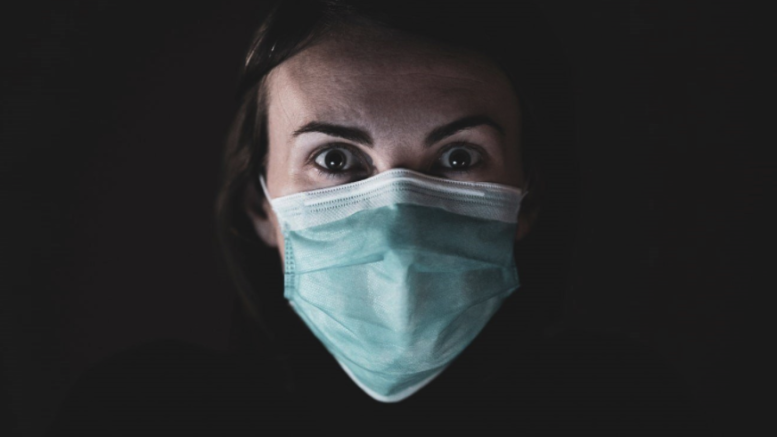Dr. Russell Blaylock warns that not only do face masks fail to protect the healthy from getting sick, but they also create serious health risks to the wearer. The bottom line is that if you are not sick, you should not wear a face mask.
As businesses reopen, many are requiring shoppers and employees to wear a face mask. Costco, for instance, will not allow shoppers into the store without wearing a face mask. Many employers are requiring all employees to wear a face mask while at work. In some jurisdictions, all citizens must wear a face mask if they are outside of their own home. ⁃ TN Editor
With the advent of the so-called COVID-19 pandemic, we have seen a number of medical practices that have little or no scientific support as regards reducing the spread of this infection. One of these measures is the wearing of facial masks, either a surgical-type mask, bandana or N95 respirator mask. When this pandemic began and we knew little about the virus itself or its epidemiologic behavior, it was assumed that it would behave, in terms of spread among communities, like other respiratory viruses. Little has presented itself after intense study of this virus and its behavior to change this perception.
This is somewhat of an unusual virus in that for the vast majority of people infected by the virus, one experiences either no illness (asymptomatic) or very little sickness. Only a very small number of people are at risk of a potentially serious outcome from the infection—mainly those with underlying serious medical conditions in conjunction with advanced age and frailty, those with immune compromising conditions and nursing home patients near the end of their lives. There is growing evidence that the treatment protocol issued to treating doctors by the Center for Disease Control and Prevention (CDC), mainly intubation and use of a ventilator (respirator), may have contributed significantly to the high death rate in these select individuals.
By wearing a mask, the exhaled viruses will not be able to escape and will concentrate in the nasal passages, enter the olfactory nerves and travel into the brain.
Russell Blaylock, MD
As for the scientific support for the use of face mask, a recent careful examination of the literature, in which 17 of the best studies were analyzed, concluded that, “ None of the studies established a conclusive relationship between mask/respirator use and protection against influenza infection.”1 Keep in mind, no studies have been done to demonstrate that either a cloth mask or the N95 mask has any effect on transmission of the COVID-19 virus. Any recommendations, therefore, have to be based on studies of influenza virus transmission. And, as you have seen, there is no conclusive evidence of their efficiency in controlling flu virus transmission. CLICK THIS LINK FOR THE REST OF THE STORY AT https://www.technocracy.news/blaylock-face-masks-pose-serious-risks-to-the-healthy/

No comments:
Post a Comment